
Food in the Modern World
Food Security in South Africa
What food means to us in today’s world is very different to what it meant hundreds of years ago. Industrialisation changed the way we grow, process, package and consume food.
A supermarket in Durban, KwaZulu-Natal.
For most people living in cities food, the need for food is about getting the most convenient, satisfying and affordable option to fit with their busy lives. South Africa Online ® looks at how our relationship with food has changed over the years under the influence of industrialisation and urbanisation.
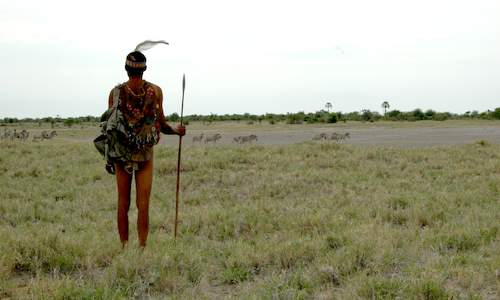
The world we live in today is unlike anything our species has known before. For most of our human experience, we followed where our food wen...
more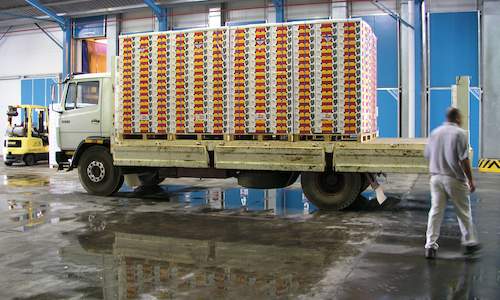
When human societies first made the switch from a roaming, hunting-gathering existence to that of formal agriculture about 10 000 to 12 000 ...
more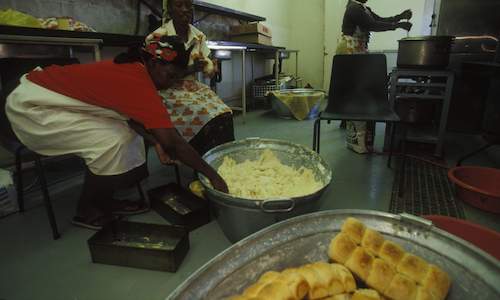
Before the emergence of the so-called Western diet and the large-scale industrialisation of our food production, both of which are penetrati...
more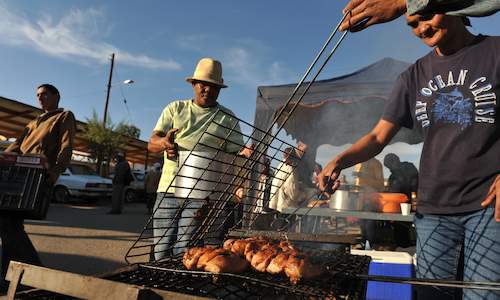
Informal trading is as much a part of life in the slums and townships of southern Africa’s cities as the people strolling the streets here...
more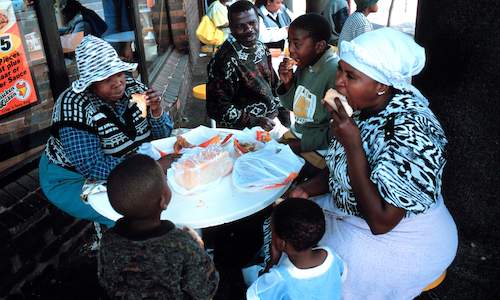
Our cities are making us fat and sick. Southern Africa is one of the fastest-urbanising parts of the world, and by the middle of this centur...
more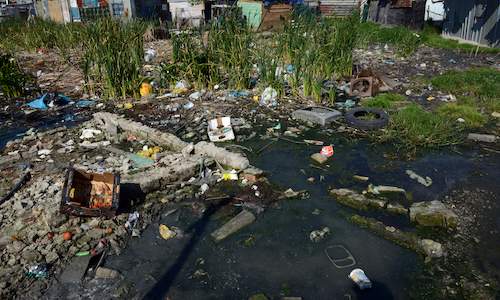
So, we are fat. It is our fault. We are simply greedy and lazy. Just stop eating so much. Get off the couch and move your body! Some experts...
more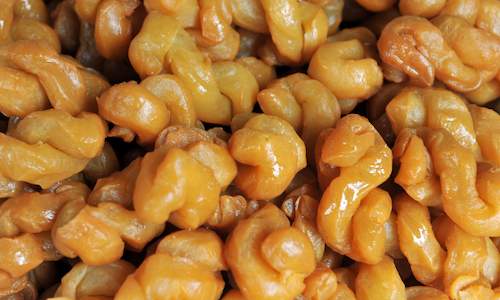
Growing urbanisation has occurred in tandem with the emergence of the industrial food-production system, backed by the forces of globalisati...
more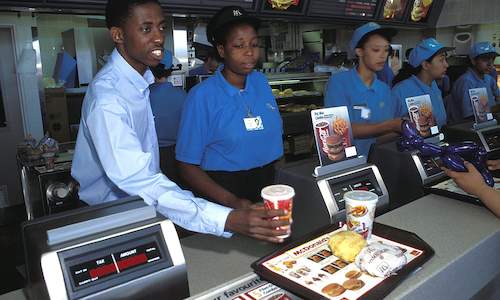
The demands of city living – hours and hours at work, time spent commuting, the seductive lure of the TV and the couch – give us less ti...
more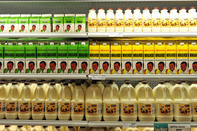
 The world we live in today is unlike anything our species has known before. For most of our human experience, we followed where our food wen...
The world we live in today is unlike anything our species has known before. For most of our human experience, we followed where our food wen... When human societies first made the switch from a roaming, hunting-gathering existence to that of formal agriculture about 10 000 to 12 000 ...
When human societies first made the switch from a roaming, hunting-gathering existence to that of formal agriculture about 10 000 to 12 000 ... Before the emergence of the so-called Western diet and the large-scale industrialisation of our food production, both of which are penetrati...
Before the emergence of the so-called Western diet and the large-scale industrialisation of our food production, both of which are penetrati... Informal trading is as much a part of life in the slums and townships of southern Africa’s cities as the people strolling the streets here...
Informal trading is as much a part of life in the slums and townships of southern Africa’s cities as the people strolling the streets here... Our cities are making us fat and sick. Southern Africa is one of the fastest-urbanising parts of the world, and by the middle of this centur...
Our cities are making us fat and sick. Southern Africa is one of the fastest-urbanising parts of the world, and by the middle of this centur... So, we are fat. It is our fault. We are simply greedy and lazy. Just stop eating so much. Get off the couch and move your body! Some experts...
So, we are fat. It is our fault. We are simply greedy and lazy. Just stop eating so much. Get off the couch and move your body! Some experts... Growing urbanisation has occurred in tandem with the emergence of the industrial food-production system, backed by the forces of globalisati...
Growing urbanisation has occurred in tandem with the emergence of the industrial food-production system, backed by the forces of globalisati... The demands of city living – hours and hours at work, time spent commuting, the seductive lure of the TV and the couch – give us less ti...
The demands of city living – hours and hours at work, time spent commuting, the seductive lure of the TV and the couch – give us less ti...